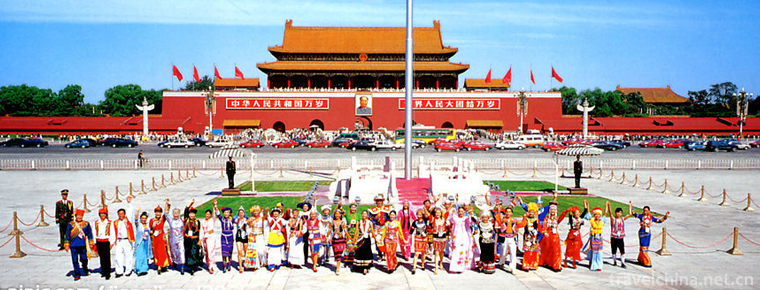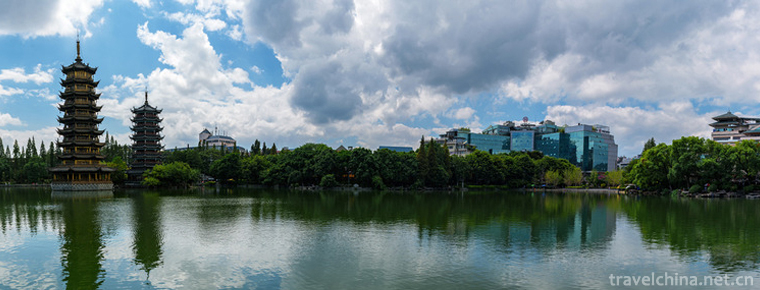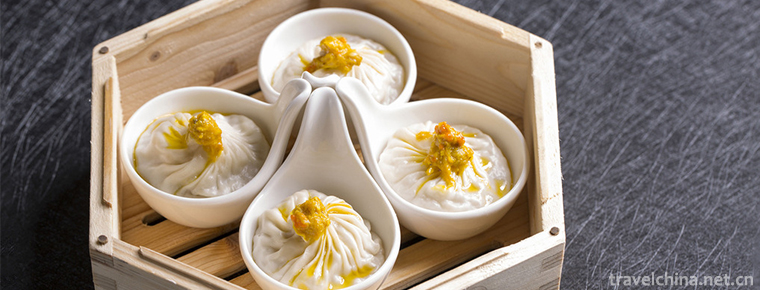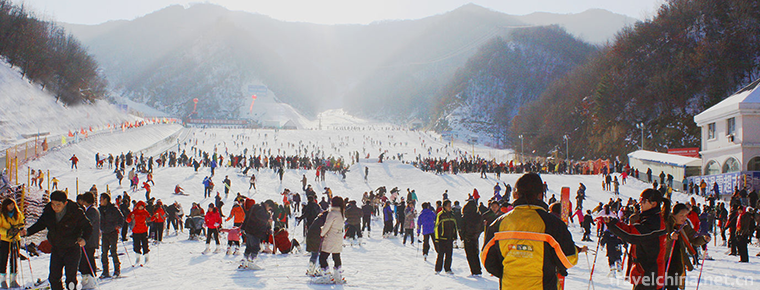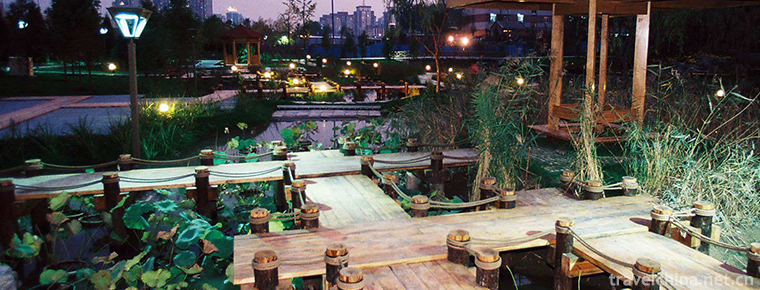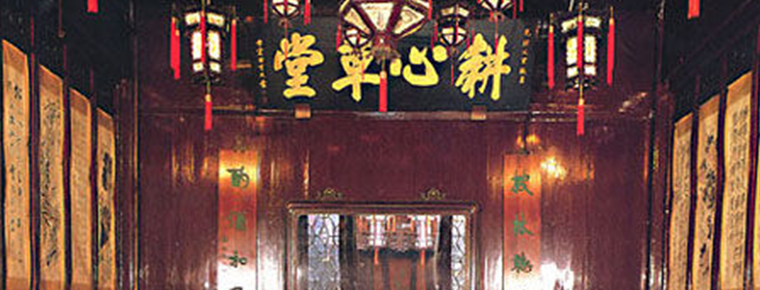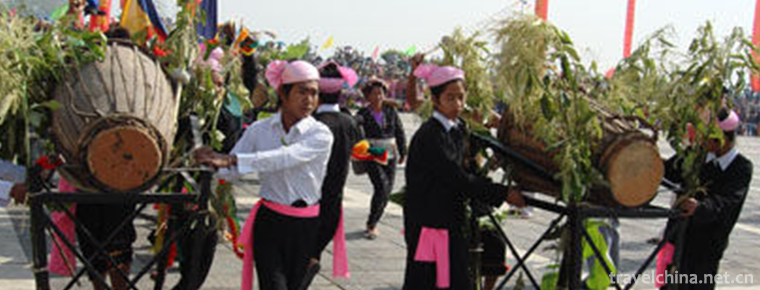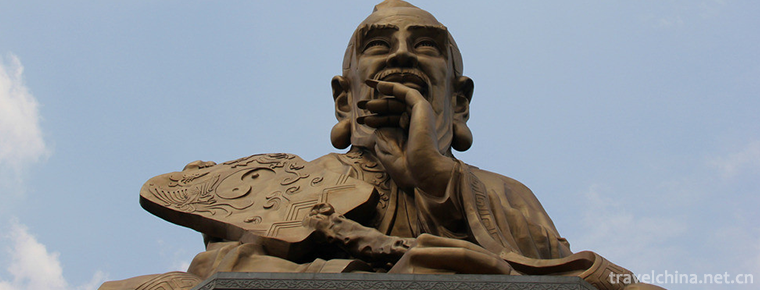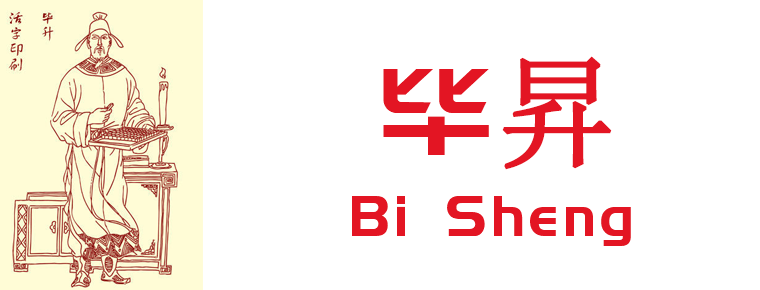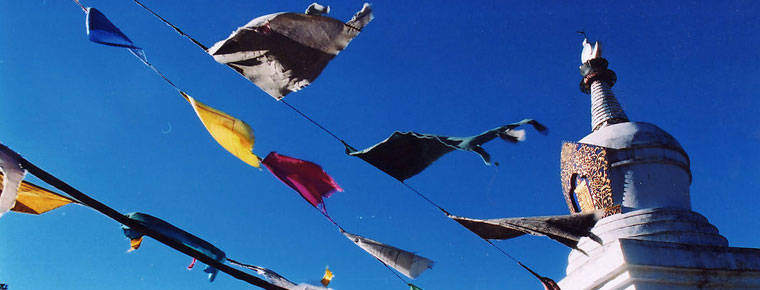Qiangge war
Qiangge war
The Battle of the Qiang is the most famous one among the folk epics of the Qiang people. It describes the history of the ancestors of the Qiang people who had experienced hardships and hardships, fought with magic soldiers, fought against the Goths, and were forced to move from the northwest to the upper reaches of the Minjiang River.
On May 23, 2011, the Qiangge War declared by Wenchuan County, Sichuan Province, was listed in the third batch of national intangible cultural heritage list with the approval of the State Council.
historical origin
The Qiang people in China (ancient and modern Qiang) have a long history. They mainly live in Maoxian, Wenchuan, Lixian and Beichuan Qiang Autonomous Counties in Aba Tibetan and Qiang Autonomous Prefecture of Sichuan Province.
The Qiang people have created rich and colorful culture and art with unique style. Its folk literature has a wide range of subjects, rich content, vivid language, moving plot, strong national color and local characteristics. Among them, the most widely influential are "Qiangge War", "Mujie Zhu and Dou An Zhu" and so on.
The Battle of Qiang Ge is an ode of heroic epic nature. It tells the story of Qiang people's ancestors migrating from northwest to settle in the upper reaches of Minjiang River in ancient times. At that time, the Qiang people and the "strong, fierce and powerful" Goji people frequently fought. Later, with the help of God, he defeated the enemy, lived and worked in peace and prosperity. The War of Qiang Ge reflects the historical fact that the Qiang people have experienced the great migration of their nationalities in history.
"Mujie Zhu and Dou An Zhu" reflects the life of ancient Qiang people from another aspect. It tells the story of Mujiezhu, the goddess of heaven, who met and fell in love with Dou Anzhu, a young Qiang nationality, and finally broke the rules of heaven and became partners. "Mujie Zhu and Dou An Zhu" enthusiastically eulogizes the people of Qiang nationality's defiance of theocracy and destiny and their struggle against arranged marriage. Mujiezhu and Dou An Zhu are both legendary figures and ancestor gods worshipped by the Qiang people.
primary coverage
The epic "Qiang Ge War", which is spread among the Qiang people and reflects tribal wars, tells the story of the war between the Qiang ancestors who migrated to the upper reaches of the Minjiang River in Sichuan and the Goji people who had settled there. This epic describes the arduous process of Qiang ancestors'immigration to Sichuan, and eulogizes the bravery, wisdom and bravery of the ancient Qiang people. This epic is mainly preserved in the Shibi classics of the Qiang nationality. Duan Gong, a wizard of the Qiang nationality, sings on important ceremonial occasions of his own nation, performs the experiences of his ancestors, praises the achievements of his ancestors, and condenses his love and admiration for the ancient Qiang people.
In the Qiang epic "Battle of Qiang Goh", the son of Mubita was stolen from cattle grazing in the world. Mubita and his son found tendons and meat residues in the teeth of the Goki people. Mubita asked the Qiang people and the Goki people whether they love God or not. The Qiang people said, "We want God to love Qiang, not the Goki people." The Goki people express their love only for themselves and do not love the Qiang people and God. Mubita was angry and let the Qiang and the Goki fight. Firstly, the Qiang people split the wood with an axe. The Goji people, afraid that the Qiang people would win, put their hands in the crack to split the wood. The Qiang people took out the axe and put the Goji people's hands in the crack. The Goji people lost. Then Mubita gave three white stones to the Qiang people and three snow to the Goki people, ordering the two sides to fight. As a result, the Goki people were killed countless times by the Qiang people. The Gorky lost again. The third time, Mubita handed the sticks to the Qiang people, the hemp stalks to the Goji people, and ordered them to fight against each other. As a result, the Gogi suffered many casualties and ended in a tragic defeat. Mubita also let the Qiang people stand on the rocks and hide at the foot of the rocks. Mubita said that the place at the foot of Red Rock was very good, and whoever seized it first belonged to whoever owned it. After hearing this, the Qiang people rushed to wrestle grass under the rocks, and the Goji people rushed to jump down the rocks one after another. As a result, "Wanzhang Cliff is like an abyss, and since then Goji has disappeared."
In Lixian County of Sichuan Province, there is a foreign language "Battle of Qiang", which mentioned in the epic: Qiang people live a semi-nomadic and semi-nomadic life, and they live in the same area is the "Ga" nationality, cave dwelling in the caves of rocks, hunting for a living, often stealing cattle and horses in the Qiang people's pasture. The leader of the Qiang people, Jade Biwa, asked God for help. On the day of offering sacrifices to his ancestors, the God turned into an old man to see the reality. He saw the Qiang people burning cedar and erecting white cloth banners of sun, moon and stars to worship God. See the Yellow thorns and black thorns to honor the gods of heaven and the ghosts of the earth. God was very angry to see you do so. On another day of ancestor worship, you grabbed a large number of cattle and sheep from the Qiang people's pasture, and there was a fierce battle between Qiang and you. The God turned into an old man and appeared among them, telling them to choose three hemp stalks as weapons to win or lose. As a result, the Qiang people's hemp stalks left bloodstains on their bodies, while the Qiang people's hemp stalks beat them like ashes, laughing and defeating them. In winter, they fought in the snow again. The old man asked them to take three snow battles. The snow mass became a hard stone in the hands of the Qiang people, and it was still a snow mass in the hands of you. The Qiang people won again and begged for mercy from the Qiang people. The Qiang people said to them, "For the sake of your former neighbors, you walked along the river and went to the end of the river, where there is land to grow. After that, you will eat, wear and live well." The Qiang people used white stones to pile the upper boundaries, and the two sides drew blood as an alliance. They will not infringe on each other today or later. You leave, but not reconciled, your leader's tricks are multifarious, will change magic. Before his departure, he called nine kinds of animals, birds and insects and instigated them to destroy the fields and homes of the Qiang people and spread the plague. Chief Qiang Yubiwa led the Qiang people to defeat the animals, drive them away and lead a stable life.
In remote ancient times, the ancestors of the Qiang people migrated from northwest to southwest. When one of them migrated to the beautiful valley platforms in the Minjiang River and the upper reaches of the Weijiang River, he met a tribe named "Goji". He has a high nose, deep eyes, strong body and can fight well. The battles between the Qiang people and them, which were defeated repeatedly, had reached the point of preparing to flee from the ground. The inspiration of the gods of fortune in their dreams lies in placing wool on their necks as markers, using sharp and sharp white stone as weapons, and then dueling with the Goki people in the sand, and finally winning the battle. Since then, the Qiang people have been able to live and work in peace and contentment in the upper reaches of Minjiang River and Weijiang River, develop production, and become a "people with language, farming and herding, and knowledgeable communities". In order to repay God's grace, the Qiang people have used white stones for generations to symbolize the highest god, offering sacrifices to temples, hillsides and white pagodas on the roofs of each household. They worship them day and night, and are devout. This custom has been followed to this day.
The main features of the epic content of The War of Qiang Ge are as follows:
1. Build temples, worship day and night, and be devout.
2. To teach and educate the descendants of the Qiang Nationality to love their hometown, unite and help each other, respect the old and love the young, and abide by the law. The epic "Qiang Ge War" can educate the people to love their country and their own nation, rally their strength, stimulate the self-esteem and self-confidence of the Qiang people, and make the Qiang people and other nationalities develop together and keep pace with the times.
Current situation of inheritance
The 21 documentaries of intangible cultural heritage recorded by Beichuan New Bureau of Culture and Guangzhou have been completed in the early stage. They will be broadcast in Beichuan TV station around the first day of October in the Qiang calendar year of 2015.
Beichuan is the only Qiang Autonomous County in China and the birthplace of Dayu, the ancient water hero of the ancestor of Chinese humanities. The culture of Yu and Qiang has a long history. In order to excavate, arrange and preserve the Yuqiang culture in Beichuan, Beichuan Wenguang New Bureau arranged staff of County Cultural Hall and county TV station for three months from March 2015. They went deep into the Qiang villages in Beichuan to collect, arrange, interview, record and shoot 21 documentaries of intangible cultural heritage. At present, the recording work has been completed.
"Video materials will be used to present the intangible cultural heritage of Beichuan, such as Qiang customs, Dayu sacrificial rituals, legends, various folk arts and crafts, in the form of pictures, subtitles, audio and video, so that you can have a more complete and in-depth understanding of the Yuqiang culture." Guo Zhiwu, director of Beichuan Wenguang New Bureau, introduced that 21 documentaries included six categories: folk literature, inheritance music, traditional dance, traditional skills and folk customs. Each documentary was shot from the geographical environment, historical origin, distribution area, the main technical characteristics, important value and current inheritance status of the project.
It is understood that the 21 documentaries are about the Qiang war, Qiang folk songs, Qiang salang, Beichuan old bacon production skills, traditional dwelling construction skills, Beichuan old bacon production skills, traditional dwelling building construction skills, Qiang building building building building building skills, interrupt, Qiang blowing, Qiang loudspeakers, waist band, sheep skin dance, stistististilts lion dance, Qiang ceramics, Qiang ceramics, corn wine production skills, Yuyuyu, Qiang Salang Salang Salang Salang Salang salang, Beiclang, Xichuan old meat production skills, traditional dwdwdwdwdwelling construction skills, Qiang building building building building building building building building building building building building building building building building building skills, Qiang interrupt, Qiang blowing, interrupt blowing, Drafting Techniques of Qiang Nationality Grass Stone sculpture, hand-made tea, ancient Qiang tea, Xujiawan twelve lanterns.
Inheritance Significance
This epic reflects a kind of national folklore complex, that is, "the discussion of the land power and natural resources of the nation within the nation". During the Qiang war, the Qiang people migrated to the Minjiang River. In the case of limited living resources, they had disputes with the indigenous people who had already lived there. The indigenous people wanted to expel the Qiang people who had moved to the area, while the Qiang people tried to survive there. Finally, the Qiang people defeated the Goji people in the name of worship of gods. According to archaeological discoveries, in the graves of the Goji people, cultural relics such as grain and spinning wheels were found. At the same time, according to some legends of the Qiang people in Lixian County, it is also mentioned that the Goji people would plough their fields with oxen. The ancestor of the Qiang people, Zhigaiba, once went to ask the Goji people for advice, but the Goji people refused to teach. These indicate that the Goji people are the farming tribes that lived before the Qiang people in the Minjiang River Basin. With the arrival of the Qiang people, they launched a fierce competition for natural resources. It is mentioned in the epic that the Goji people will use magic, and their leaders will turn into bears, wild boars, plagues, etc. to attack the farmland of the Qiang people and spoil their hard-cultivated crops, livestock and so on. The epic describes the result of the fierce battle between the Goji and Qiang people, and divides their spheres of influence in the form of monuments.
"As a nation's history, an important purpose of the dissemination of epics is to elevate the status of all previous kings and monarchs in order to ensure the legitimacy of power in successive dynasties. The genealogy of this power in history is `necessary', so that the successors of power can be painted with glory. The context of epic plot development is from the birth and origin of ethnic groups to the continuation of history. Narration is not only or mainly not about the original creation or creation, but also about the rationality of history and the legitimacy of the ownership of power today. In The Battle of Qiang Goh, the Qiang people defeated the Goji people in the name of God of Love. As the victorious party, they used the authority of God to emphasize the rationality of defeating the Goji people to settle in Minjiang River basin. The epic was handed down orally and the national identity was constructed in the ritualized narrative. "Only when we have a common history can we have a basis for identification and thus guarantee the legitimacy of authority."

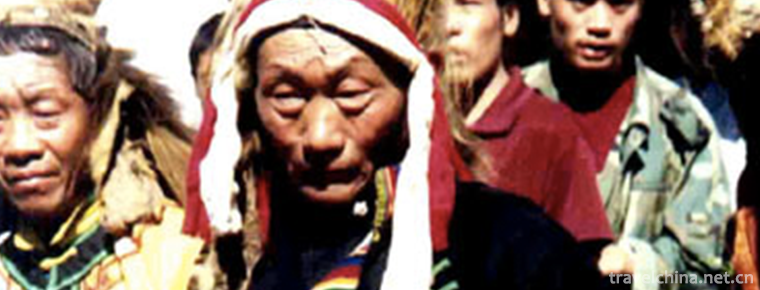
-
Guilin two rivers and four lakes
Guilin's "two rivers and four lakes" refer to the Lijiang River.
Views: 154 Time 2018-10-12 -
Crab Dumplings in Soup
Crab yellow soup bag is a traditional snack in Jiangsu Province. The crab yellow soup bag is made of crab yellow and crab meat with stuffing.
Views: 149 Time 2018-10-27 -
Funiu Mountain Skiing Resort
Located on the north slope of the old boundary ridge of Funiu Mountain in Luanchuan County, Luoyang Funiu Mountain Skiing Resort has the highest elevation of 2200 meters and an elevation of 1700 meter.
Views: 133 Time 2018-12-22 -
Yuan Dynasty Capital City Wall Site Park Yuandadou Chengyuan Site Park
The Yuandu Chengyuan Site Park was built on the Tucheng Site of Yuandu (National Key Cultural Relics Protection Unit, batch No. VI-1). It is located near Mingguang Village, Southern College Road.
Views: 142 Time 2018-12-23 -
Hu Qingyutangs Traditional Chinese Medicine Culture
Hu Qingyutang's traditional Chinese medicine culture is one of the national intangible cultural heritages and the traditional trade customs preserved by Hu Qingyutang..
Views: 142 Time 2019-05-03 -
Water Encouragement
Water drum dance is a kind of popular dance spread between the De'ang and Miao nationalities. It combines water, drum and dance to worship ancestors, pray for good weather and peace in villages. Howev.
Views: 140 Time 2019-06-15 -
Mianyang Teachers College
Mianyang Normal University is a full-time general undergraduate college in Sichuan Province. The school is located in Mianyang, China's science and technology city, the birthplace of Li Bai, known as .
Views: 186 Time 2019-08-31 -
Lao Tzu
Laozi, surnamed Li Minger, is a character of Bai Yang, or posthumous Bo Yang. In the late spring and Autumn period, the birth and death years were unknown. About 571 years ago, it was born in the late.
Views: 194 Time 2019-09-04 -
Bi Sheng
Bi Sheng (about 971 years to 1051) was promoted to Hubei, Huanggang, Hubei. Yingshan County One of the great inventors of ancient China, the inventor of the five great ancient inventions of ancient Ch.
Views: 217 Time 2019-09-06 -
Paoma mountain Paoma Hill
Paoma mountain is located in the south of Kangding City, Ganzi Tibetan Autonomous Prefecture, Sichuan Province. It is the extension of Gongga mountain to the north. It is the core area of the "two-hour tourism economic circle around Gongga" and a national .
Views: 109 Time 2020-12-06 -
Nanchong science and technology
In 2019, Nanchong implemented 97 key science and technology plan projects, an increase of 7.8% over that in 2018, including 83 national and provincial science and technology plan projects. It won 11 provincial science and technology progress awards. In the whole year.
Views: 144 Time 2020-12-17
